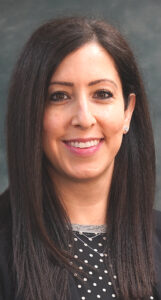By Ken Weaver and Anita Qonja-Collins
As a school community, we have endured many intrusions on our learning environment during the COVID-19 pandemic: masks, social distancing, quarantines, remote learning, school closures, etc. While Oxford Community Schools has managed to deliver face-to-face instruction most of the school year, many of our students have still felt the impact of COVID-19 on their learning. This impact has taken many different forms, as we have had to adopt block schedules to accommodate less class transitions to reduce transmission rates at our secondary schools, 10-14 day quarantines for students who show symptoms or who have been near an infected individual, classrooms and schools have moved to extended periods of remote learning to reduce the spread of COVID-19. These examples are but a few of the disruptions to instruction endured by students and teachers this year.

In addition, the pandemic has affected the quality of student learning through other means as well. Students and teachers have endured the mental strain of teaching and learning with the constant worry of getting the virus. They have watched love ones battle the virus for their lives. They have endured changes almost daily to their schedules and routines. Virtual students are not immune to the virus’ impact on learning, as they too have endured the mental strain that this pandemic has caused. Many times, this mental strain can have the same or greater impact on learning that actually missing a day of school can have. While we are proud of our students, teachers, and building administrators for persevering through this school year, we realize that there may be long-term consequences for all of these disruptions to instruction.

At Oxford Community Schools (OCS), we are greatly concerned about the gaps and deficiencies that we are seeing in many of our students. In Michigan, like many other states, teachers are expected to teach and students are expected to learn a set amount of curriculum. Educators base instructional pacing on 180-day school year. When students miss or when students fail to learn large amounts of curriculum, they develop gaps in their learning. These gaps are compounded by the simple fact that each year of curriculum relies on students learning the previous year’s curriculum. If not addressed, these gaps widen into deficiencies that cause learning difficulties or challenges for students throughout their educational career.
While all children have experienced disruptions to their learning due to COVID-19, not all experience these disruptions equally due to learning challenges, home environment, background, and other factors that are unique to each child. In many cases, disadvantaged children are particularly vulnerable to the effects that these disruptions cause. Whatever the case with your child may be, all of us are concerned about the long-term effect of these learning deficiencies.
To offset these challenges, Oxford Community Schools is offering summer learning activities to our students in kindergarten through eighth grade from June 21 – July 30. These optional learning activities will be offered to all families in grades DK-8. In addition to these learning activities, Oxford Community
Schools will be targeting select students in grades K-8 to participate in an in-person summer school. OCS will be able to offer about (200) K-5 students and (40) 6-8 students targeted instruction to address academic deficiencies in reading, writing and math. Since the in-person summer school is a little more intense, we are targeting students who have shown larger gaps and deficiencies in their learning. Our last offering will be credit recovery for students in grades 9-12.
There are many advantages to these programs:
1. Free for grades DK-8 and free for grades 9-12 if the student passes the credit recovery class!
2. Individualized instruction
3. Paper/pencil and digital options
4. Self-paced
5. Socio-emotional learning component
6. Research has been shown summer school to be effective
It is our hope that these summer learning activities will address the gaps and deficiencies that our students have developed due to the unique and trying circumstances surrounding the COVID-19 pandemic. Together, we will continue to persevere and work through the challenges the pandemic has created to provide the best education possible for our students.
Ken Weaver is Deputy Superintendent of Curriculum & Instruction; Anita Qonja-Collins is Assistant Superintendent of Elementary Education

Leave a Reply